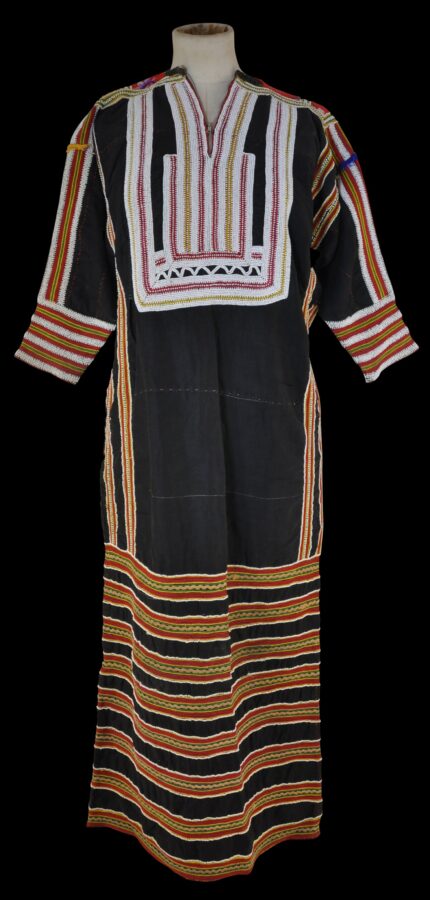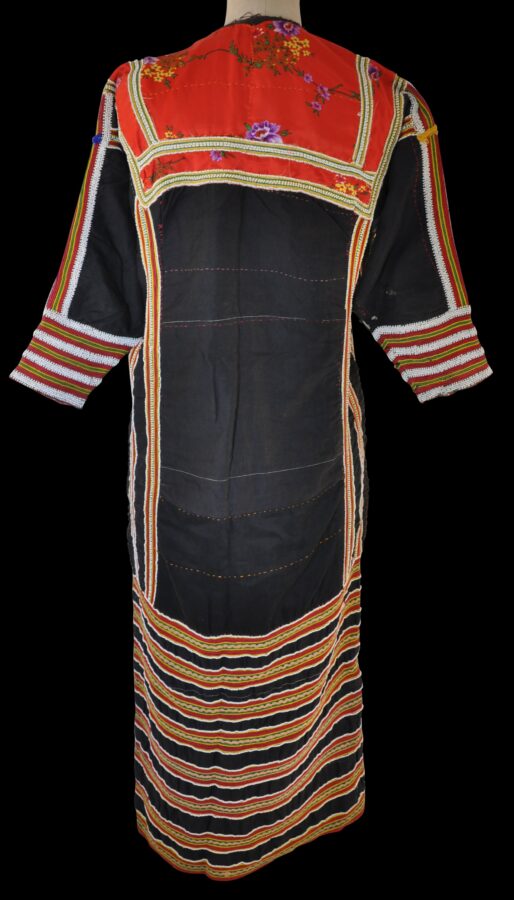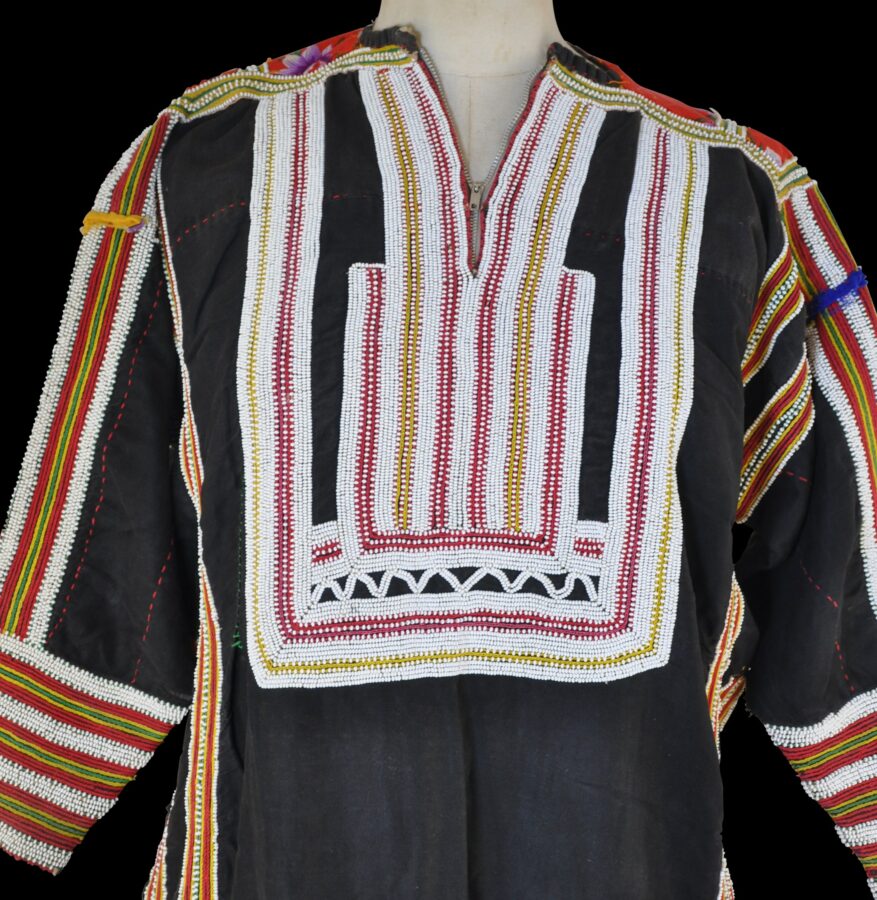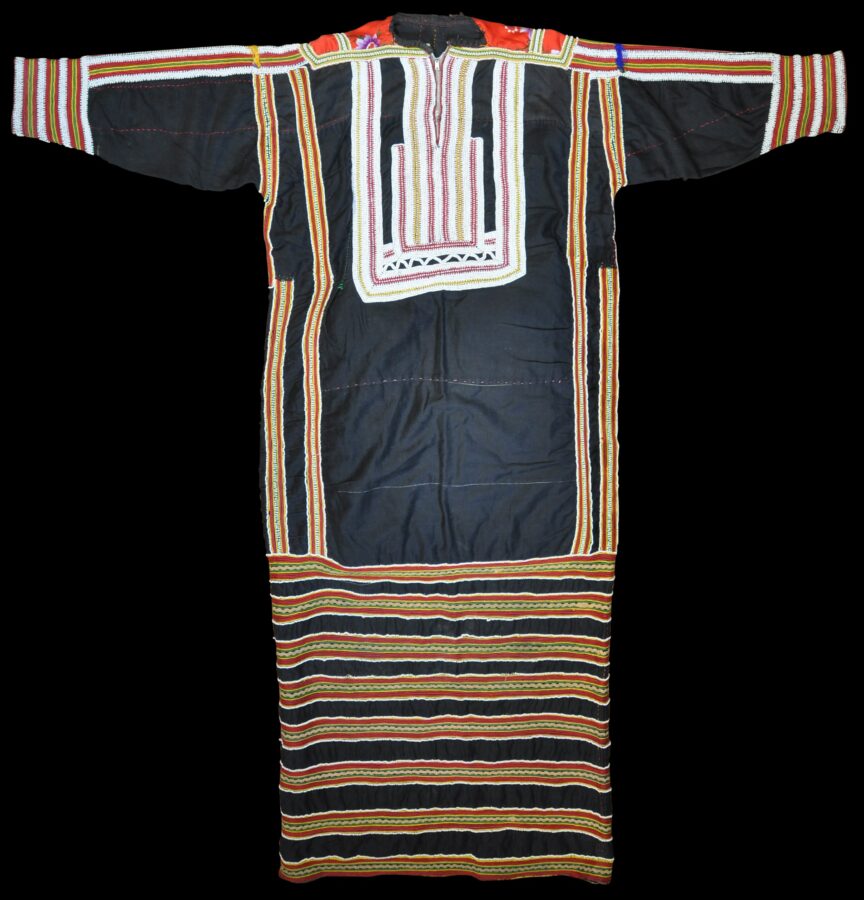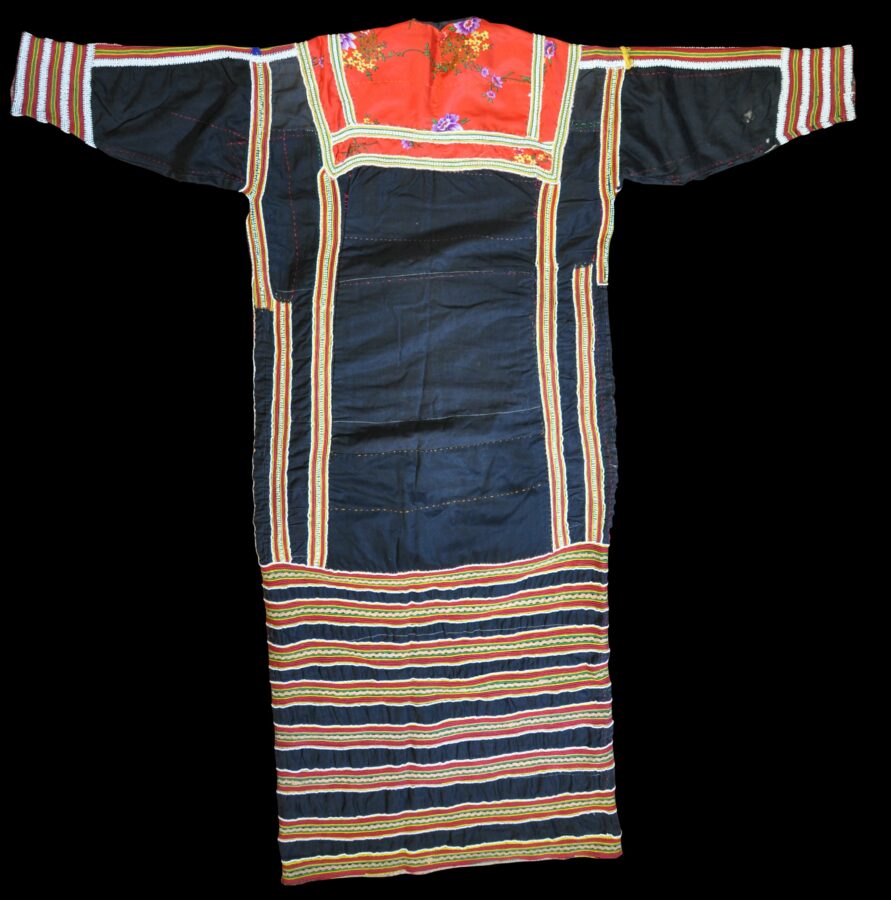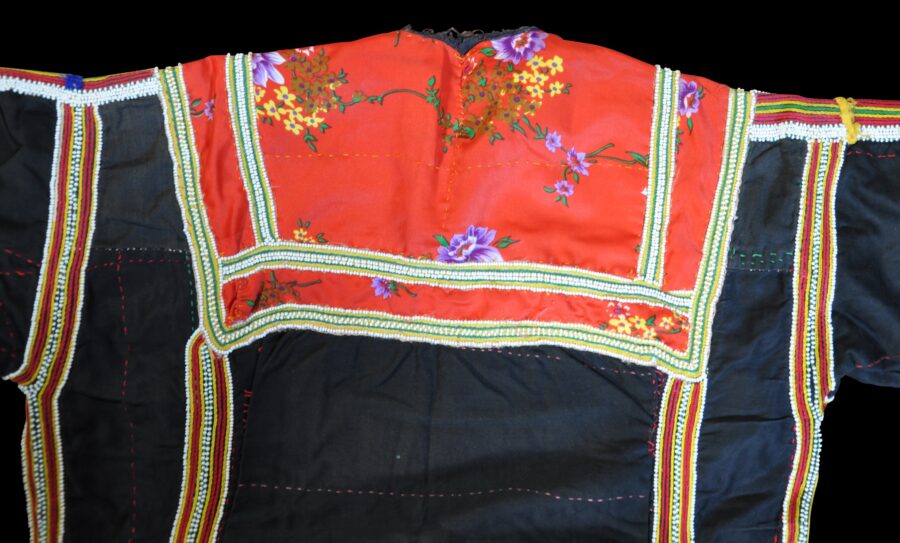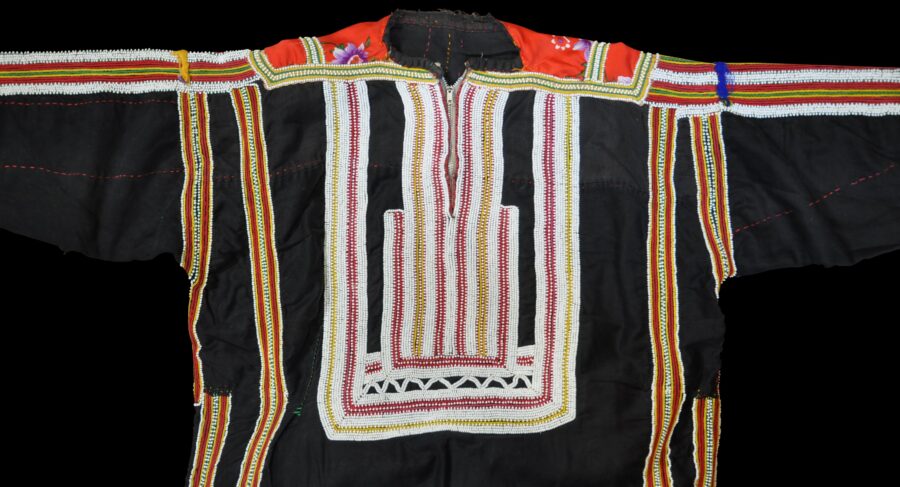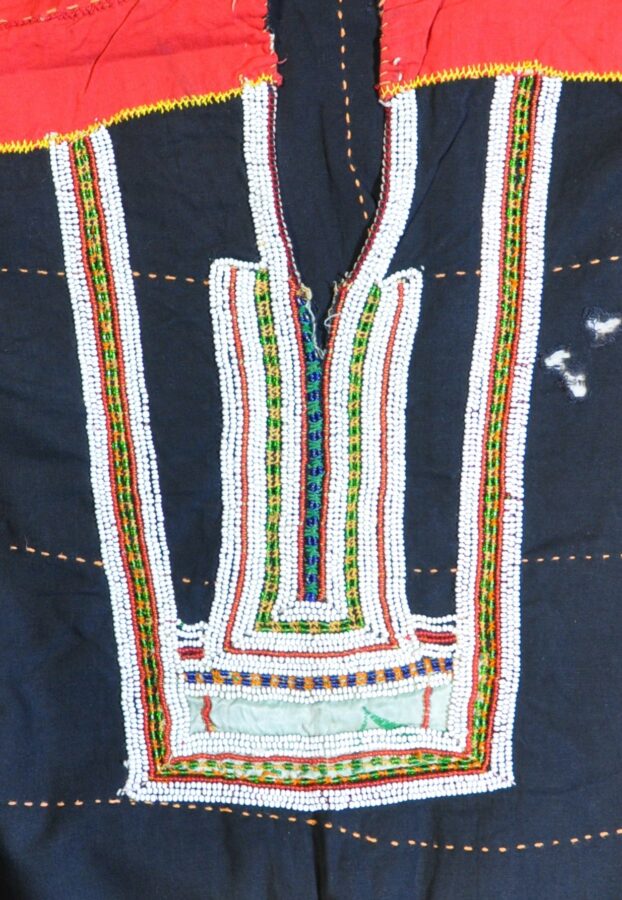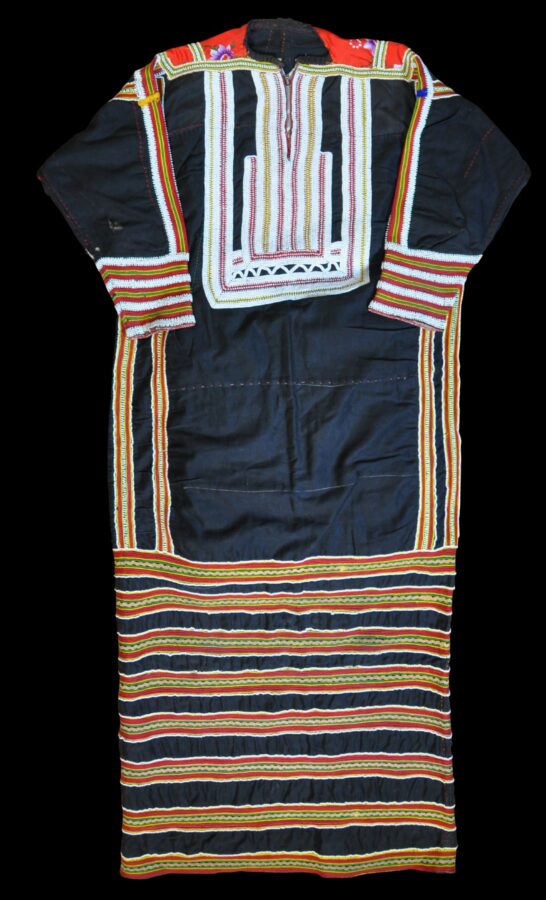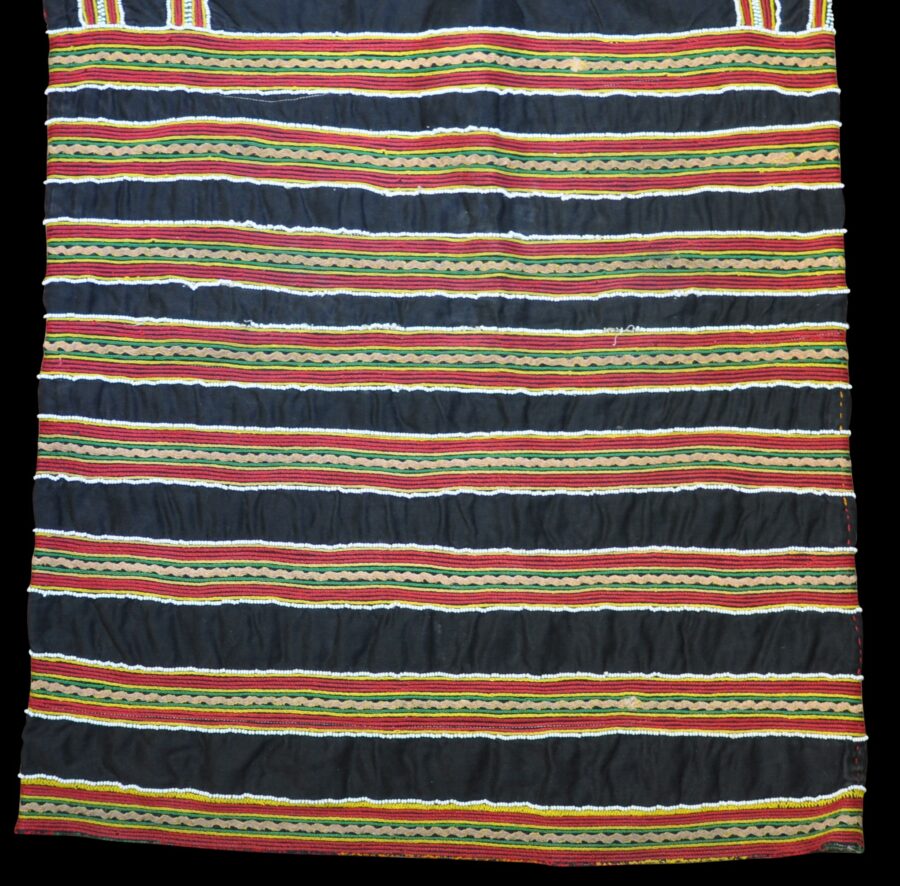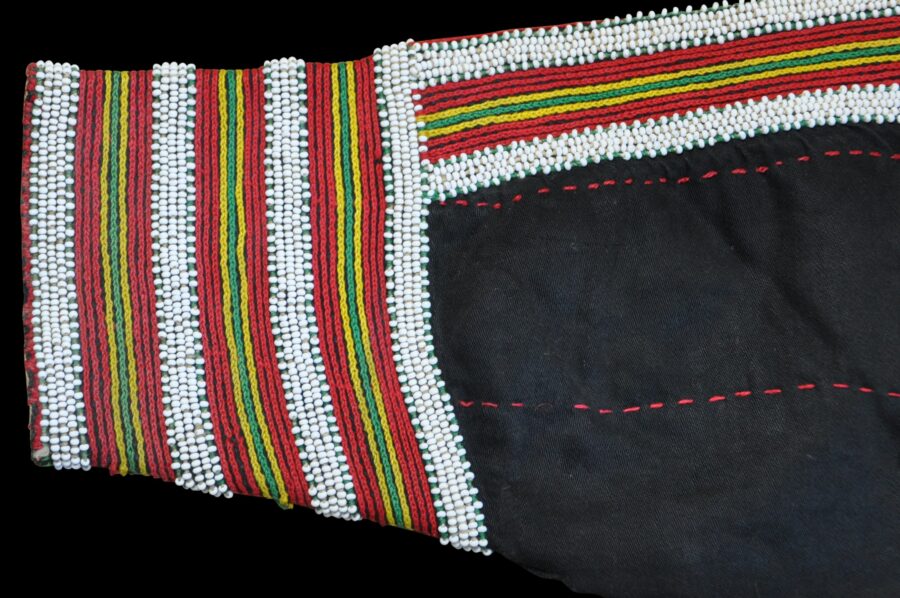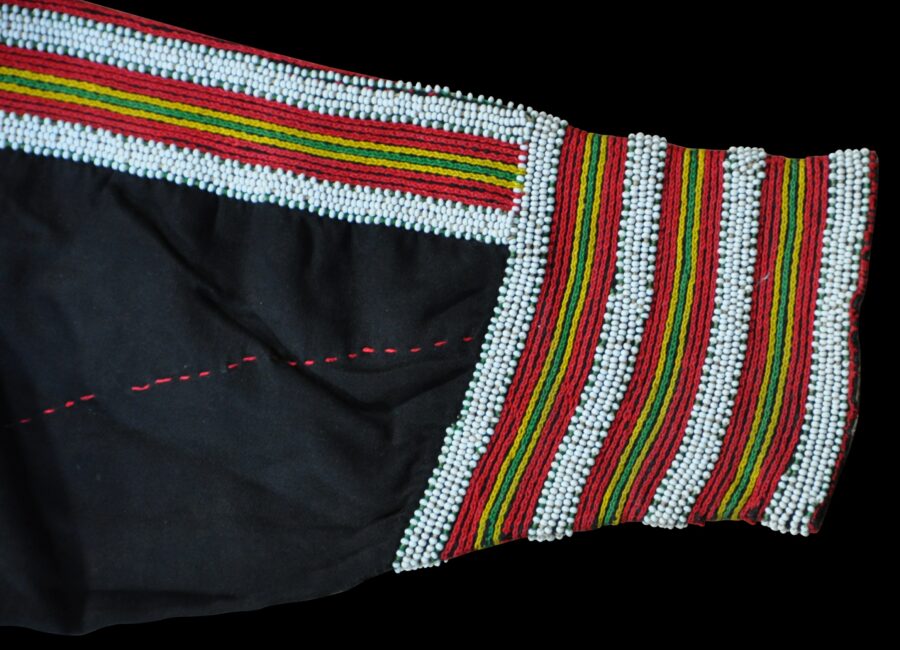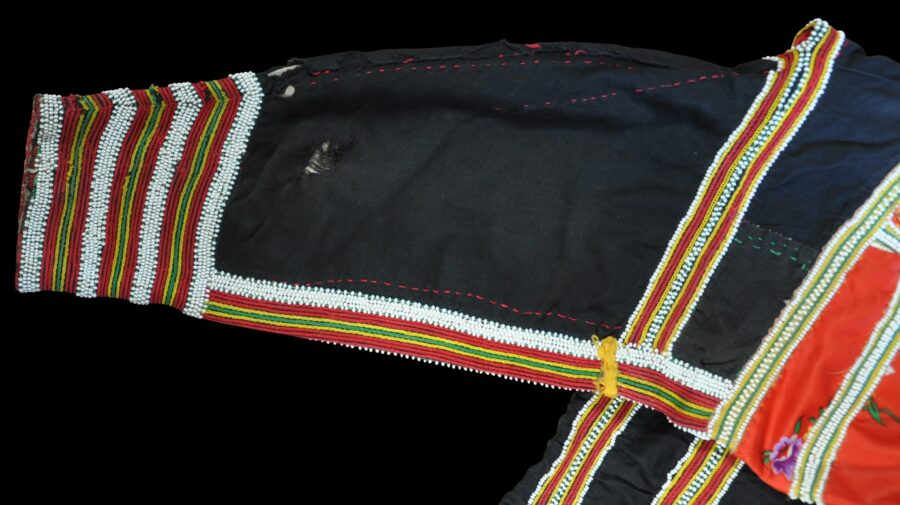Enquiry about object: 9345
Saudi Arabian Embroidered & Beaded Dress (Thobe)
Bani Malik tribal group, Hijaz region, southern Saudi Arabia mid-20th century
length: 124cm, weight: 1,421g
Provenance
private UK collection, collected in Saudi Arabia in the 1970s
This full-length dress known as a thobe (also spelt thawb) is from the Bani Malik Tribe. Elaborate embroidery characterised the dress of the female members of the Tribe, and this dress is a fine example.
The cotton fabric thobe is embroidered front and back in the lower section and on the sleeves with bright bands of green, red, peach and yellow thread bordered by lines of pure white khuruyan beads carefully sewn onto the textile, all against a black background.
The bodice panel (badanah) is heavily decorated with white, red and yellow glass beads known as khuruyan. Additional khuruyan beads are sewn to the dress and on the sleeves in bands to complement the embroidery.
The sleeves are in trapezoid form and the neck opening is rounded, and closes at the front with a metal zip fastener. A red floral print panel of textile across the shoulders at the back is probably of imported European cloth. The embroidery has been worked through an inner cotton lining to ensure that the dress maintains its shape.
The colours of this dress are more muted than other Bani Malik Tribe dresses which suggests influence from the thobes of the neighbouring Bal Harith Tribe.
‘Bani Malik’ (or ‘Sons of Malik’) is one of the major Arab tribes on the Arabian Peninsula and claim to be the descendants of Malik al-Ashtar al-Nakh’ei who fought alongside Ali ibn Abi Talib, the cousin of the Prophet Muhammad. The tribe is from Sarawiyah, which is east of Al Lith and south of Taif, between the areas occupied by the Bal Harith Tribe and the Zahran Tribe. Traditionally, the area had buzzing markets where livestock, grain, honey and other goods were traded. This explains the exuberance of Bani Malik Tribe costume – trade meant wealth to afford the costly embellishments but trade also meant that the embellishments – the beads and the brightly-coloured thread – was available.
The dress here is in good condition. There are some minor age-related holes. There are no repairs; the dress is in its original state.
References
Alghalib, L.F., H. Alireza & R. Wilding (eds.), Traditional Costumes of Saudi Arabia: The Mansoojat Foundation Collection, ACC Art Books, 2021.
Suleman, F., Textiles of the Middle East and Central Asia: The Fabric of Life, The British Museum, 2017.
Wearden, J., Decorative Textiles from Arab & Islamic Cultures: Selections from the Al Lulwa Collection, Paul Holberton Publishing, 2015.


